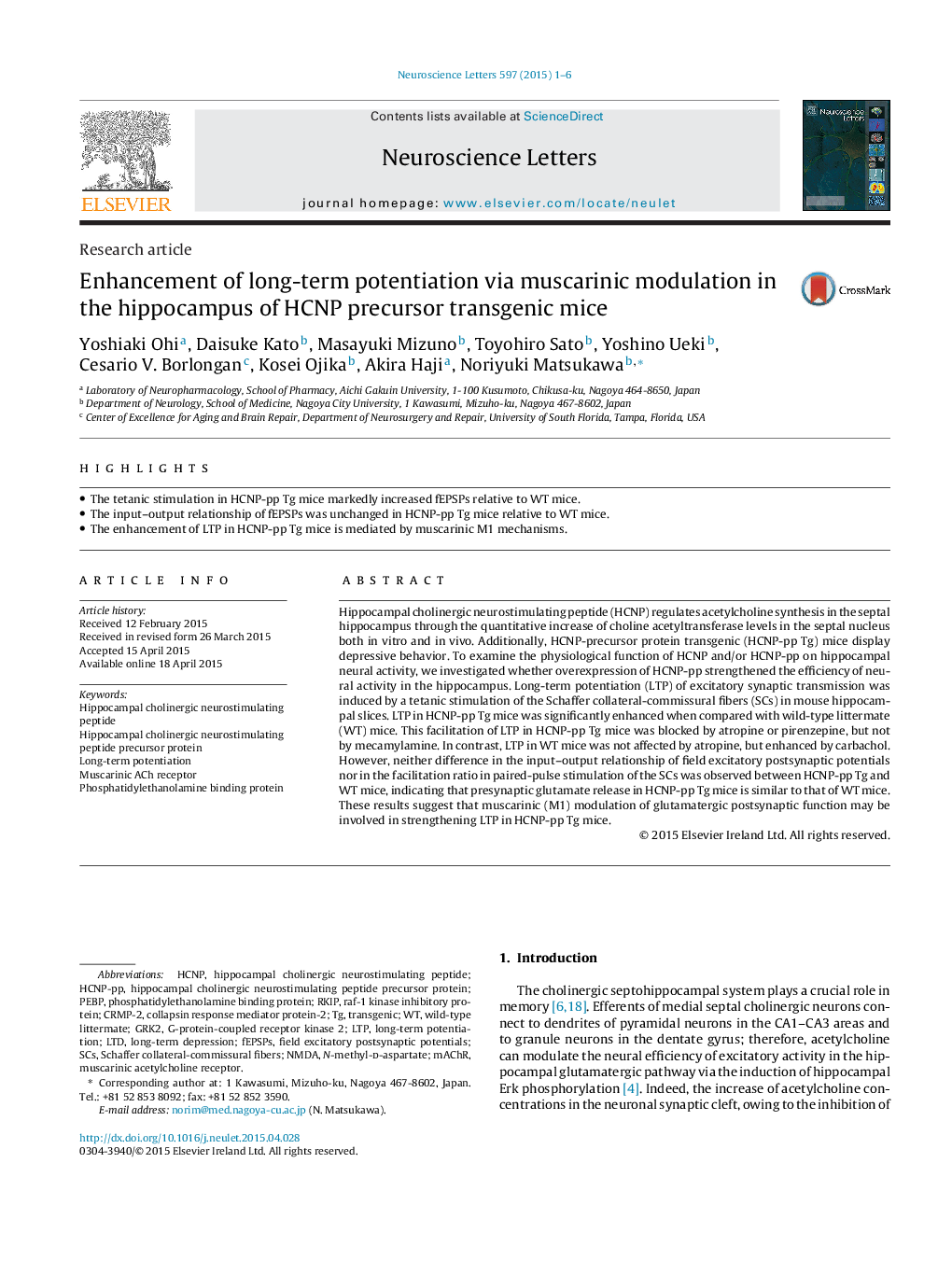| Article ID | Journal | Published Year | Pages | File Type |
|---|---|---|---|---|
| 6280687 | Neuroscience Letters | 2015 | 6 Pages |
â¢The tetanic stimulation in HCNP-pp Tg mice markedly increased fEPSPs relative to WT mice.â¢The input-output relationship of fEPSPs was unchanged in HCNP-pp Tg mice relative to WT mice.â¢The enhancement of LTP in HCNP-pp Tg mice is mediated by muscarinic M1 mechanisms.
Hippocampal cholinergic neurostimulating peptide (HCNP) regulates acetylcholine synthesis in the septal hippocampus through the quantitative increase of choline acetyltransferase levels in the septal nucleus both in vitro and in vivo. Additionally, HCNP-precursor protein transgenic (HCNP-pp Tg) mice display depressive behavior. To examine the physiological function of HCNP and/or HCNP-pp on hippocampal neural activity, we investigated whether overexpression of HCNP-pp strengthened the efficiency of neural activity in the hippocampus. Long-term potentiation (LTP) of excitatory synaptic transmission was induced by a tetanic stimulation of the Schaffer collateral-commissural fibers (SCs) in mouse hippocampal slices. LTP in HCNP-pp Tg mice was significantly enhanced when compared with wild-type littermate (WT) mice. This facilitation of LTP in HCNP-pp Tg mice was blocked by atropine or pirenzepine, but not by mecamylamine. In contrast, LTP in WT mice was not affected by atropine, but enhanced by carbachol. However, neither difference in the input-output relationship of field excitatory postsynaptic potentials nor in the facilitation ratio in paired-pulse stimulation of the SCs was observed between HCNP-pp Tg and WT mice, indicating that presynaptic glutamate release in HCNP-pp Tg mice is similar to that of WT mice. These results suggest that muscarinic (M1) modulation of glutamatergic postsynaptic function may be involved in strengthening LTP in HCNP-pp Tg mice.
